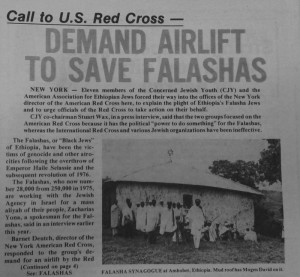Given the copious amount that has been written on the Iran deal, we publish this summary of key points by American Jewish Congress to help readers wade through the various articles and blogs, and form their own opinion about the deal:
The historic deal with Iran intended to curb its nuclear weapons program will receive a full airing in the U.S. Congress in the next several weeks. The following is a short summary of key points to keep in mind as the debate unfolds:
- Several steps must be taken before the Iran deal goes into effect. Congress has 60 days to review the deal’s terms, hold hearings, conduct a debate and take a vote in both the House and Senate.
- If Congress passes a resolution of disapproval and sends it to President Barack Obama for his signature, he has 12 days to veto the resolution. The president has said already that he would take such action, if necessary.
- Many members of both parties in Congress have expressed deep skepticism. Israel is lobbying hard against it; Gulf states, led by Saudi Arabia, also oppose the deal, but are conducting their lobbying efforts more quietly.
- The deal also must be brought to the United Nations Security Council. It is unclear at this time if that will happen before or after a congressional vote.
- No sanctions will be lifted before the end of this year. The International Atomic Energy Agency (IAEA) first must provide, by Dec. 15, a baseline assessment of Iran’s possible military activities relative to its past nuclear program.
- The IAEA will be given “when necessary, where necessary” access to monitor Iranian compliance, with a mechanism that gives Iran up to 24 days before permitting inspectors to visit designated sites.
- This “managed access” falls well short of the president’s earlier assertion that the IAEA must be allowed to have intrusive access on an “anytime, anywhere” basis.
- The current UN arms embargo will remain in place for five years and UN ballistic missile sanctions will stay in place for eight years, though both time periods can be reduced if Iran is judged to be acting in full compliance with the deal.
- The lifting of the arms embargo is outside the parameters set by President Obama, who repeatedly said during negotiations that only issues related to the nuclear file were legitimate subjects for compromise.
- Economic sanctions against Iran will be removed in stages, with some frozen assets scheduled to be released when the deal moves to implementation by the end of the year, in which case Iran is expected to benefit from $100 billion to $150 billion in cash.
- Many observers are concerned that Iran, whose current annual defence budget is approximately $30 billion, will use the influx of cash to support proxies such as Hezbollah in Lebanon and Syria, Hamas in the Gaza Strip and Houthi rebels in Yemen, and to foment instability throughout the region with greater funding to the Iranian Revolutionary Guard and the al-Quds force’s efforts in Iraq and Syria. This is on top of billions in expected oil revenues and the significant economic bump Iran is expected to enjoy through increased commerce with the international community.
- Sanctions can be restored should Iran violate the deal, though most observers are highly dubious that so-called “snapback” provisions will be effective.
- The deal will be terminated 10 years from the date of its adoption as long as Iran does not violate UN sanctions, though there are elements of it that have a 15-year life expectancy.




